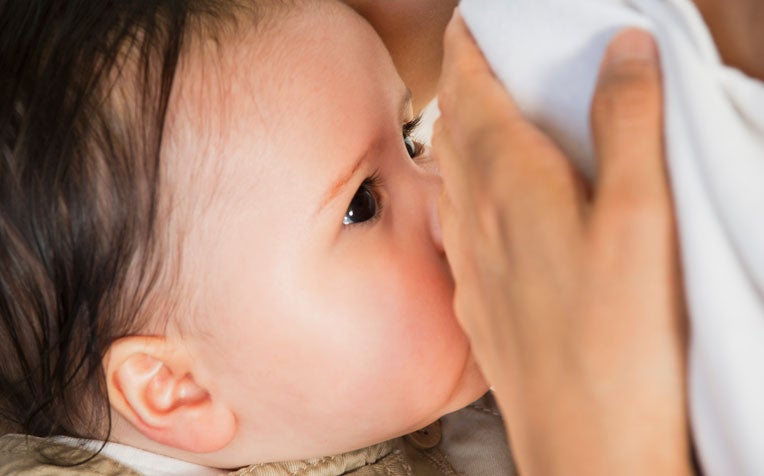
Breastfeeding is beneficial for both mother and baby's health.
Breast is best new mothers are told, while they are encouraged to breastfeed their newborn baby as long as possible. Breastfeeding is not only considered highly beneficial for a baby’s growth and development, it has numerous advantages for the mother’s health too.
But this highly recommended practice is surrounded by myths such as: “Many women don’t produce enough milk” or “It is not safe to breastfeed if you are sick”. Ms Cynthia Pang, Assistant Director of Nursing and Senior Lactation Consultant at the Lactation Clinic, KK Women’s and Children’s Hospital (KKH), a member of the SingHealth group, dispels some of these false notions about breastfeeding and presents the facts.
Myth 1: It is normal for breastfeeding to hurt.
Fact: Mild tenderness during the first few days of breastfeeding is common. Any pain that is more than mild is abnormal and is almost always due to the baby latching on poorly. If nipple pain does not get better by day three or four, or lasts beyond five or six days, you should seek a doctor’s or lactation consultant’s advice. A new onset of pain after a period of normal breastfeeding may be due to a yeast infection of the nipples and requires treatment.
Myth 2: A mother should wash her nipples before feeding her baby.
Fact: Washing the nipples before each feed is not only unnecessary but has a negative outcome since it removes the natural protective oils from the mother’s breast. These oils cleanse, lubricate and protect the nipples against germs and bacteria in the environment.
Myth 3: If the mother is taking medicine or has an infection she should stop breastfeeding.
Fact: As a small amount of the medicine will appear in the breast milk, always let your doctor know that you are breastfeeding so you can be prescribed a breastfeeding-friendly medicine.
A mother who breastfeeds while having an infection will actually protect the baby because of the antibodies she will be feeding the baby. When you fall sick, your body produces antibodies to counter the germs; these antibodies find their way to the baby through breast milk. Therefore the baby's best protection against getting the infection is for the mother to continue breastfeeding. If the baby does get sick, he or she will be less sick because of the antibodies.
Is your baby getting enough milk? Are you producing sufficient milk? Find out the truth behind common breastfeeding myths on the next page.
Ref: S13
Contributed by















 Get it on Google Play
Get it on Google Play